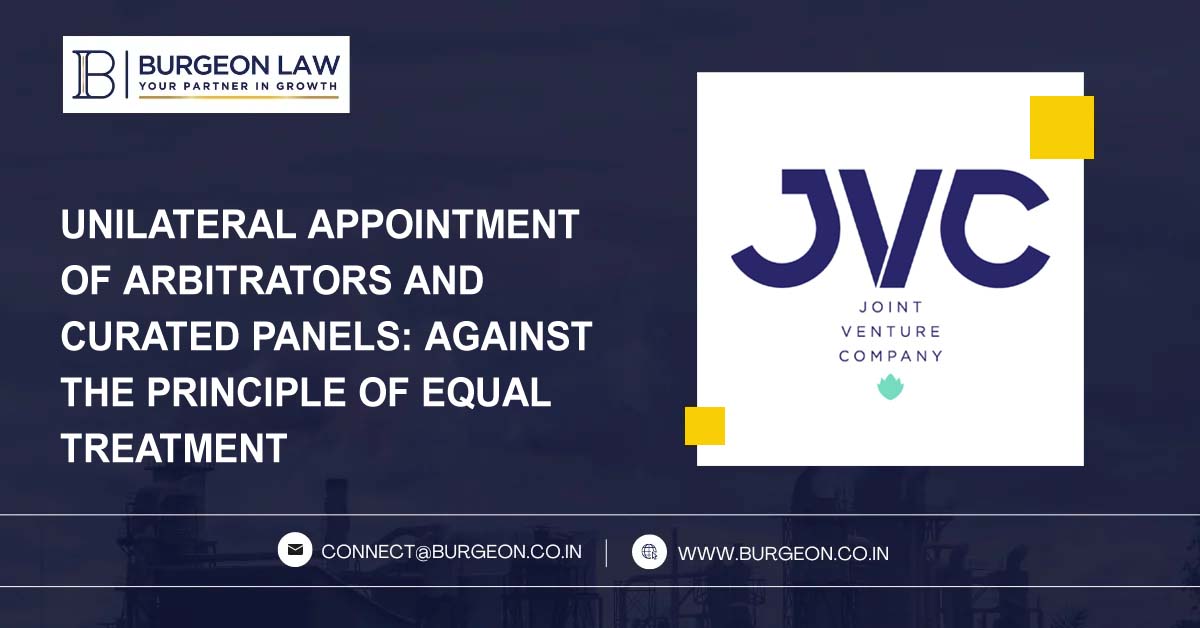In November 2024, the Supreme Court of India (“Supreme Court”), by a 3-2 majority, in the landmark judgment of Central Organisation for Railway Electrification v. ECI SPIC SMO MCML (JV) A Joint Venture Co. has settled a longstanding debate on whether an arbitrator appointment process allowing a party to unilaterally appoint a sole arbitrator, or curate a panel of arbitrators and mandate that the other party select arbitrator from the panel is valid in law. The apex court held that appointment from a unilaterally curated panel violates the principle of equal treatment and raise concerns about the arbitrators’ impartiality.
Background
The issue of appointment of arbitrators from a panel curated by one party has been a recurring debate in Indian arbitration jurisprudence, centering on the principles of independence in arbitral appointments. This controversy was first addressed in Central Organisation for Railway Electrification v. ECI-SPIC-SMO-MCML (JV) (“CORE Judgement”), where the Supreme Court upheld the validity of such clause allowing the general manager of railways to appoint an arbitral tribunal from a pre-selected panel of at least four retired officers curated by the railways.
This decision was later was questioned in Union of India v. Tantia Constructions Ltd. (“Tantia”), where the Supreme Court revisited the fairness of such appointments and deviated with the view taken in the CORE Judgment. This matter gained further prominence in JSW Steel Ltd. v. South Western Railway, where the Court reiterated the concerns raised in Tantia and called for a larger bench to review the correctness of the CORE Judgment. This led to the formation of a five-judge Constitution Bench to address the fundamental question of whether allowing one party to exercise significant control over the arbitral process undermines the principles of neutrality in arbitration.
Findings of the Supreme Court
Majority Opinion: The Supreme Court held that clauses allowing one party (often public sector undertakings) to unilaterally appoint sole arbitrators are inherently unfair and contrary to the principles of equality. Section 18 of the Indian Arbitration and Conciliation Act (“Arbitration Act”), enshrines the principle of equal treatment of parties, which is a mandatory provision applicable at all stages of the arbitration, including the stage of appointment of arbitrators. The judgment clarified that while the Arbitration Act empowers parties to decide the procedure and composition of the arbitral tribunal, this freedom is subject to safeguards ensuring impartiality. The court ruled that such clauses violate Article 14 of the Constitution of India and Section 18 of the Arbitration Act as they curtail the other party’s right to participate equally in the appointment process.
Dissenting Opinion: Justice Roy provided a dissenting opinion by opining that constitutional principles should not overshadow the Arbitration Act’s framework. Justice Narasimha also concurred with this view by emphasizing the importance of the coexistence of party autonomy and statutory duties to ensure independent tribunals.
Takeaways
There have been several instances of contracts from public sector enterprises and large corporates which have had arbitration clauses mandating appointments from panels dominated by individuals with close ties to the appointing party, which often has more leverage in negotiations. While the Supreme Court did not prohibit public sector undertakings from maintaining panels of arbitrators, it held that compelling the other party to choose from these panels compromises the arbitral process’s impartiality. This ruling applies prospectively from November 8, 2024, ensuring ongoing arbitrations remain unaffected.
This landmark judgment of the Supreme Court reinforces equality in arbitration, particularly during the appointment of arbitrators, holding that unilateral appointments violate both the Arbitration Act, and constitutional principles.

